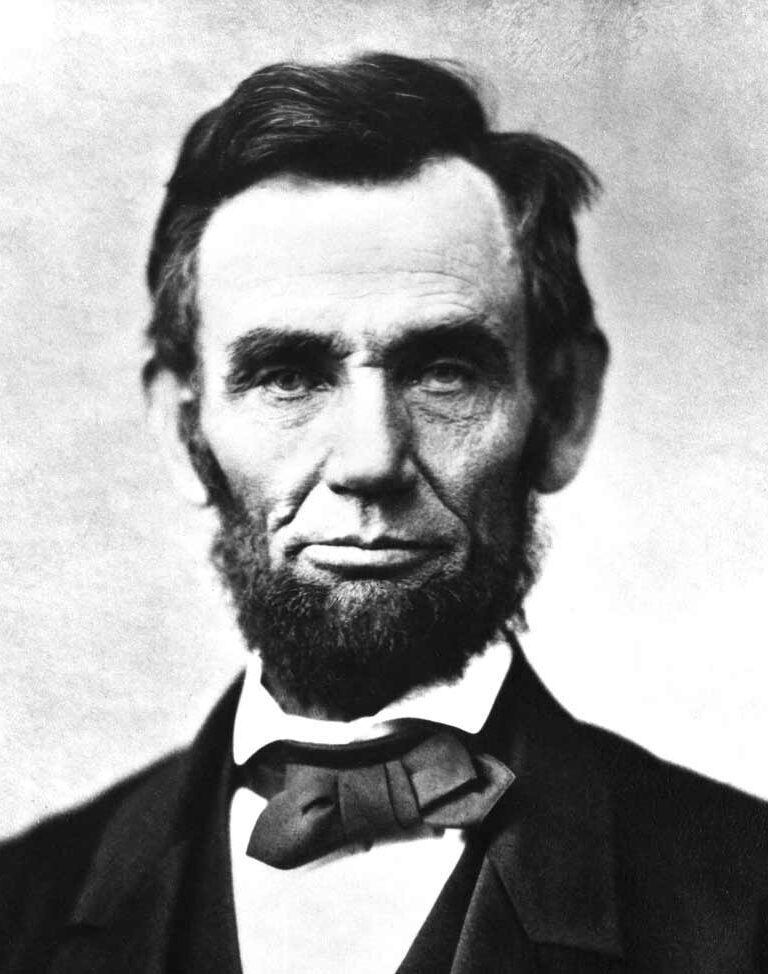Abraham Lincoln, the 16th President of the United States, stands as an iconic figure whose impact reverberates through history. His presidency, marked by tumultuous times, has become a focal point for both critics and admirers alike. Amidst the annals of American leadership, Lincoln’s name emerged with a blend of controversy and acclaim. A nuanced examination of his life unveils a tapestry woven with triumphs, struggles, and a commitment to fundamental principles.
Abraham Lincoln (16th US President) Interesting Facts
Abraham Lincoln’s multifaceted legacy extends far beyond the confines of his presidency. The intricate interplay of triumphs and challenges, accolades and critiques, positions him as a figure of enduring significance. As the subject of ongoing study, debate, and admiration, Lincoln’s impact on the American narrative remains a testament to the complexities inherent in the leadership of one of the nation’s most revered presidents. We take a look at why he’s so in style by learning his main accomplishments, and Abraham Lincoln fun facts.
1. Unwavering Triumphs and Achievements
Lincoln’s tenure at the helm of the nation was characterized by a series of triumphs that have etched his name indelibly into the fabric of American history. His crowning achievement, the Emancipation Proclamation, symbolizes a pivotal moment in the nation’s narrative, a resolute stand against the shackles of slavery. Additionally, Lincoln’s steadfast leadership during the Civil War showcased his ability to navigate the nation through its darkest hour, earning him widespread acclaim as a skillful and resolute commander-in-chief.
2. Consistent Acclaim in Student Surveys
The resonance of Abraham Lincoln extends beyond historical accounts; it echoes the opinions of students who have engaged with his legacy through surveys conducted since 1940. These surveys, spanning generations, consistently place Lincoln among the top three most revered presidents. The enduring appeal of Lincoln in the academic sphere underscores his significance as a subject of study, revealing a timeless fascination with his leadership, vision, and the enduring impact of his policies.
11. A Subject of Ongoing Critique
However, amidst the accolades, Lincoln’s legacy is not immune to scrutiny. Critics, both contemporary and retrospective, raise poignant questions about his decisions and policies. The complexities of his presidency invite a deeper exploration, acknowledging the challenges and controversies that marked his time in office. Delving into the intricacies of Lincoln’s leadership reveals a narrative woven with shades of ambiguity, where the president’s decisions are subjected to the discerning gaze of historical analysis.
23. Surmounting Challenges and Legacy
Lincoln’s journey was one of surmounting challenges, and navigating a fractured nation through the crucible of civil war. His presidency, marked by an unwavering commitment to preserving the Union and advancing the cause of human freedom, leaves an indelible mark on the pages of American history. The enduring legacy of Abraham Lincoln lies not just in the annals of presidential achievements but in the collective consciousness of a nation that continues to grapple with the complexities of its past.
More Interesting Articles
- 140 Interesting Facts About Madonna
- 142 Interesting Facts About Justin Bieber
- 35 Interesting Facts about Victor Hugo
- 60 Interesting Facts About Robert De Niro
- 40 Alfred Nobel Interesting Facts for All Ages
- 22 Interesting Facts About Kelli Williams
- 32 Interesting Facts About Woody Allen
- 25 Uma Thurman Important Facts
- Christopher Columbus Important Facts
- Sir Walter Raleigh Facts to Know about A Legend
- 37 Interesting Facts about Pablo Picasso
- 30 Interesting Facts About Frank Sinatra
- 18 Interesting Facts About George Clooney
- 20 Interesting Facts About Katy Perry
- 28 Interesting Facts About Demi Moore Bio
- 35 Interesting Facts About Novak Djokovic
- Rishi Kapoor – Biography | Movies | Achievements
- Irrfan Khan – Biography | Contribution | Achievement
- 75 John Lennon Interesting Facts
- 58 Drew Barrymore Interesting Facts for Fan

